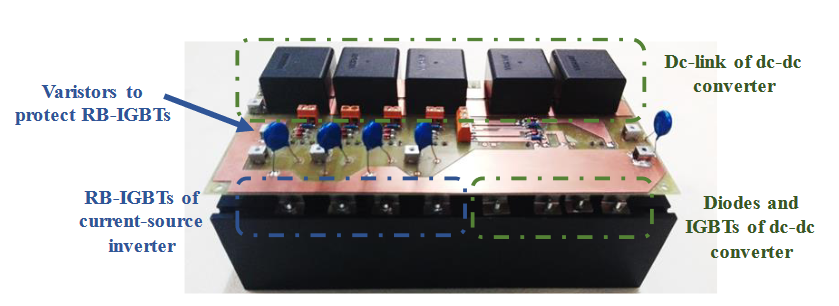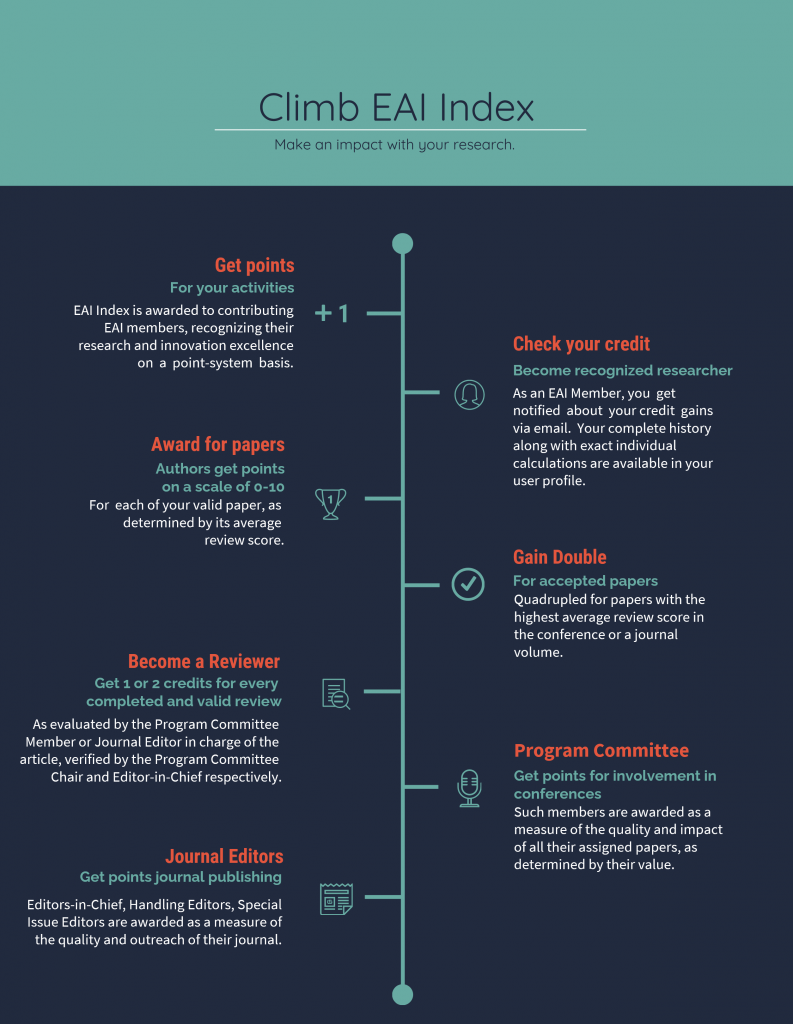EAI Index is the first open and transparent system of recognizing great researchers worldwide. Succeeding in it could be both engaging and beneficial for your career.
EAI members (authors, but also program committee members, conference organizers, volunteers, and journal editors) are awarded for their work annually. After the end of each calendar year, we reset the overall score so everyone has an equal chance to be recognized.
As you can see, our fellows, distinguished, and senior members class of 2021 consists of more than 4000 members. There are a couple of takeaways from their activities that could help you get more points. Everything you do, whether you present or review research, organize a conference, or volunteer counts toward your Index.
Hundred points for single conference activities
Your options to collect points throughout the year are wide: Choose from 22 EAI transactions journals, or books to publish in, 100+ annual conferences to participate in, and many other activities.
Our member from the University of Minho collected the majority of his points during the 2nd EAI International Conference on Sustainable Energy for Smart Cities as a Program Committee Member.
If you add the points he gained and as an author of various publications such as conference proceeding A Novel Single Phase Shunt Active Power Filter Based on a Current Source Converter with Reduced Dc-Link or research article with title Development and Evaluation of Smart Home IoT Systems applied to HVAC Monitoring and Control in Energy web journal, you have a good example of how overall recognition of a researcher could grow in few months.
Another successful researcher also published various papers in Sustainable Energy for Smart Cities publication from the second EAI International Conference on Sustainable Energy for Smart Cities. Their main point gains were for the submissions and high review scores for papers such as Efficiency Comparison of Different DC-DC Converter Architectures for a Power Supply of a LiDAR System, or A Novel Single-Phase Shunt Active Power Filter Based on a Current-Source Converter with Reduced Dc-link.

Review papers, see what research is trending
To fully benefit from the collaborative services that we offer, you could also review your peers’s work. As a result, you will see what research is trending in your area and grow your Index.
If you are an expert in your field, it should supplement your roles as a program committee member or as an author. Author from Duy Tan University reviewed multiple submissions to Industrial Networks and Intelligent Systems journal, and Green Energy and Networking publication, which brought him tens of points.
To Review papers, simply find an interesting abstract, submit your qualifications, and your Bid will be considered by the Program Committee Member. Explore what research is available for review right now in our Community Portal.
Tip: When describing your qualifications, don’t just say you are an expert. Provide examples of your work as a reviewer and make sure you have your Bio in your member profile.
Join the objective evaluation process, be recognized in 2022
As you could see, thanks to novel community evaluation processes, we guarantee our members objective, transparent, and fair recognition, independent of location, economic condition, or local funding.
Starting in 2019, members are evaluated quantitatively via EAI Index on the basis of their technical qualifications, community service, and impact. Learn more about EAI Index mechanics and be among the recognized members next year.

80% Technical qualifications – awarded to Authors and Reviewers submitting to or volunteering at EAI conferences or journals.
20% Community service – credits awarded to General Chairs, Program Committee Chairs, Track Chairs, Program Committee Members, Editors-in-Chief, Handling Editors, and Special Issue Editors for their effort in organizing and promoting excellence in research.


